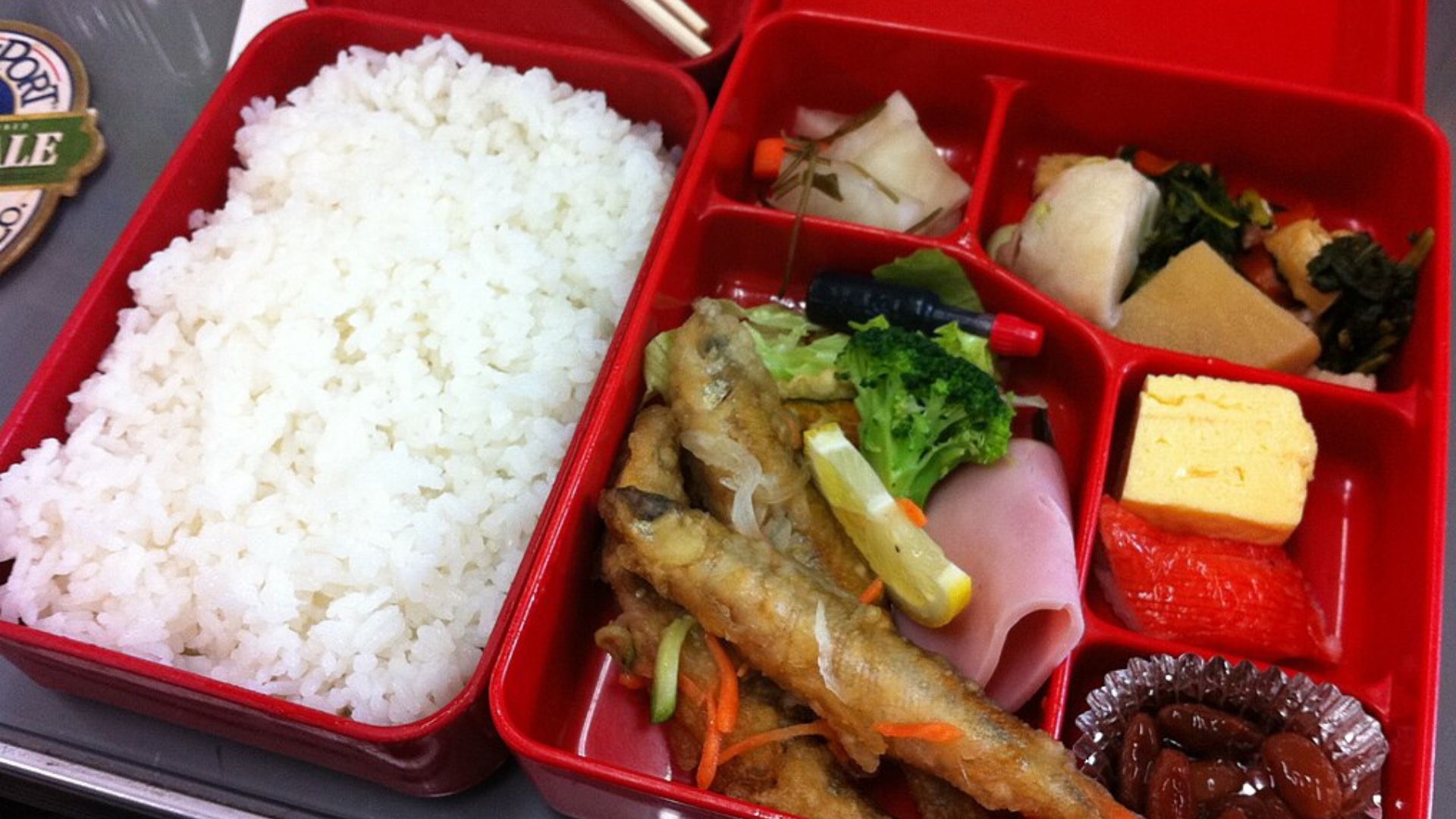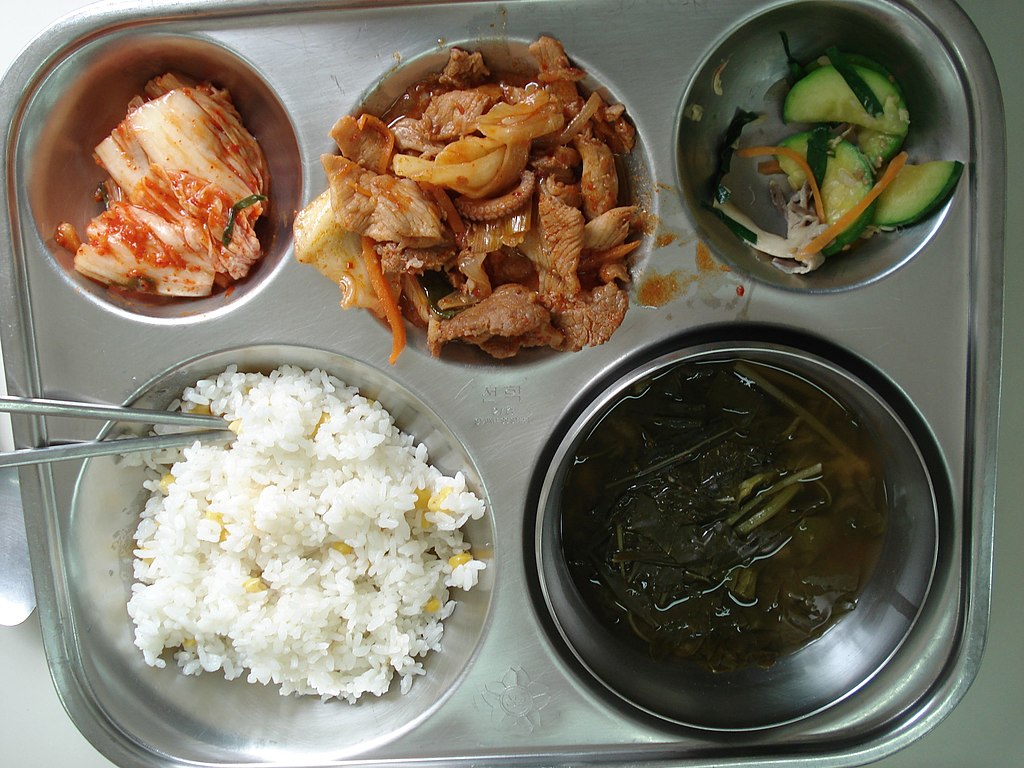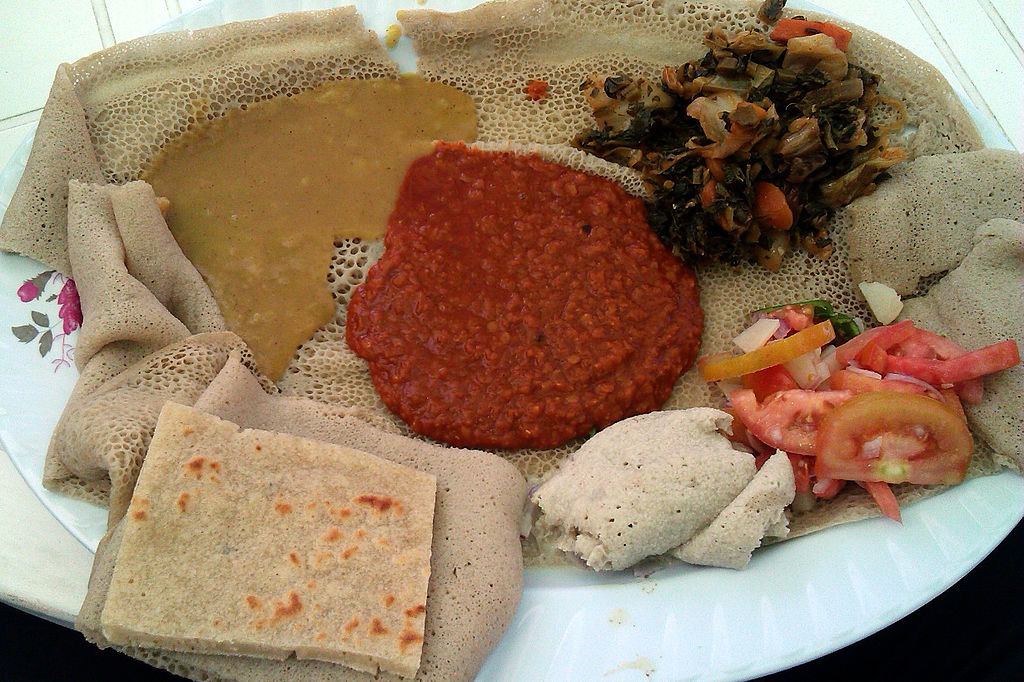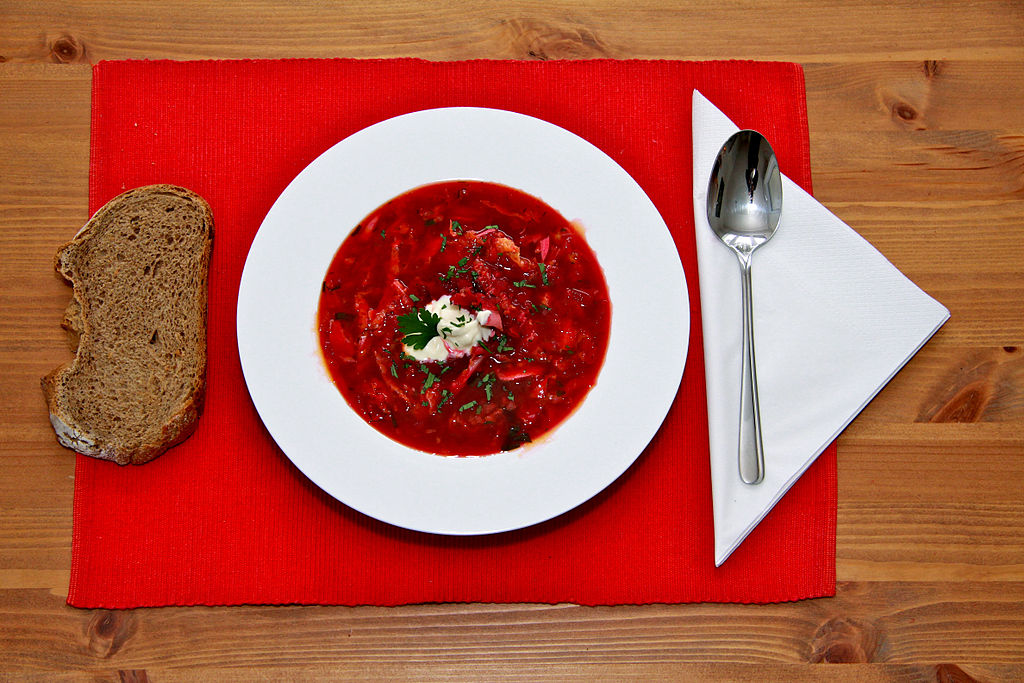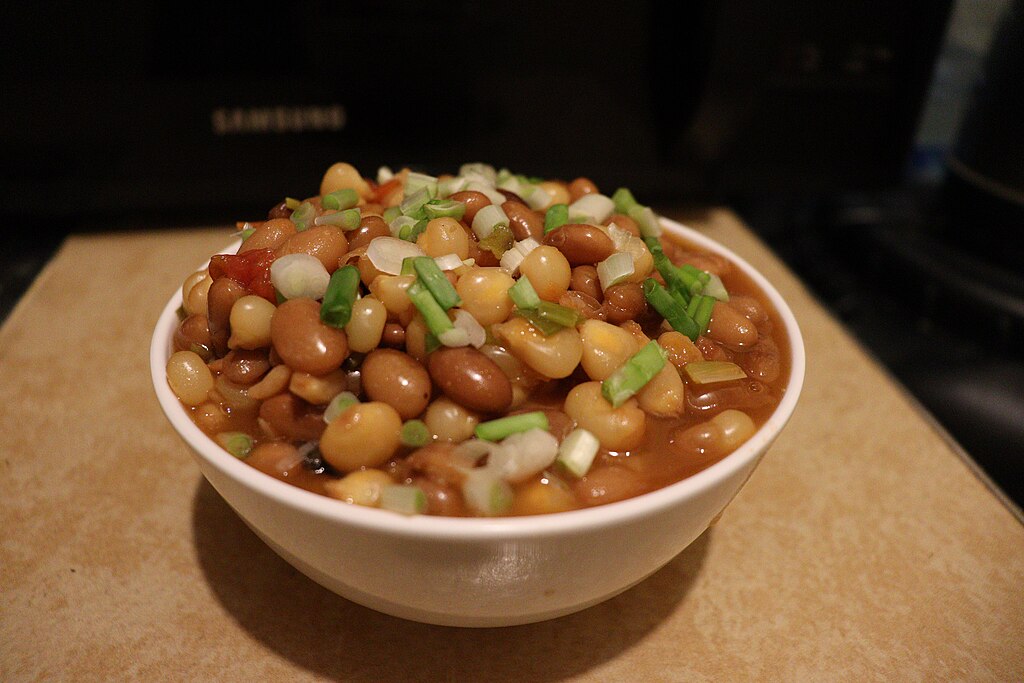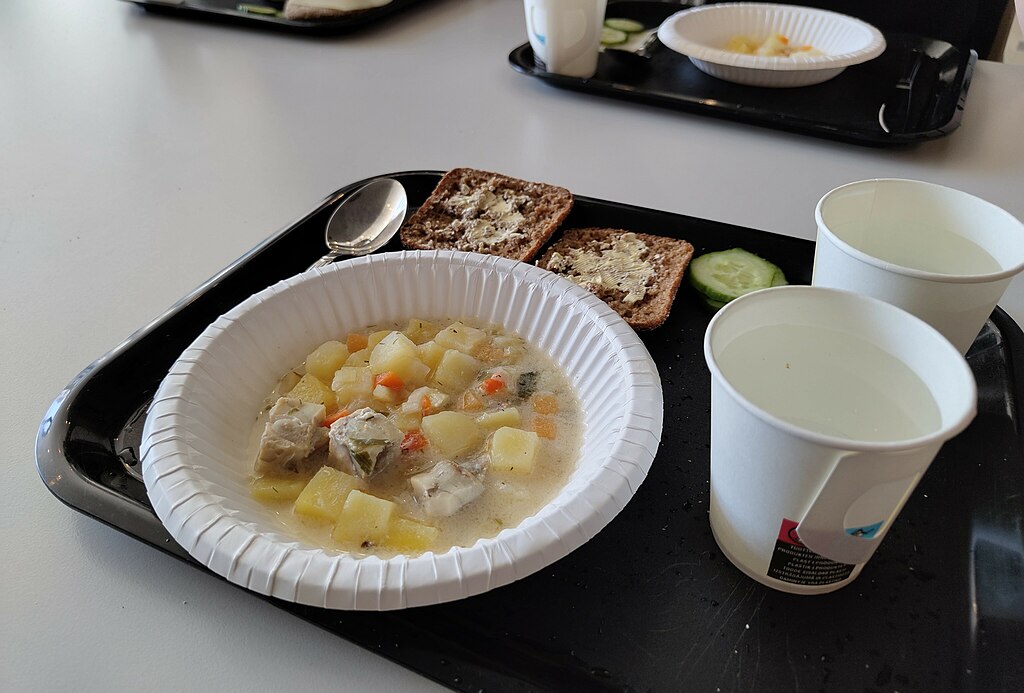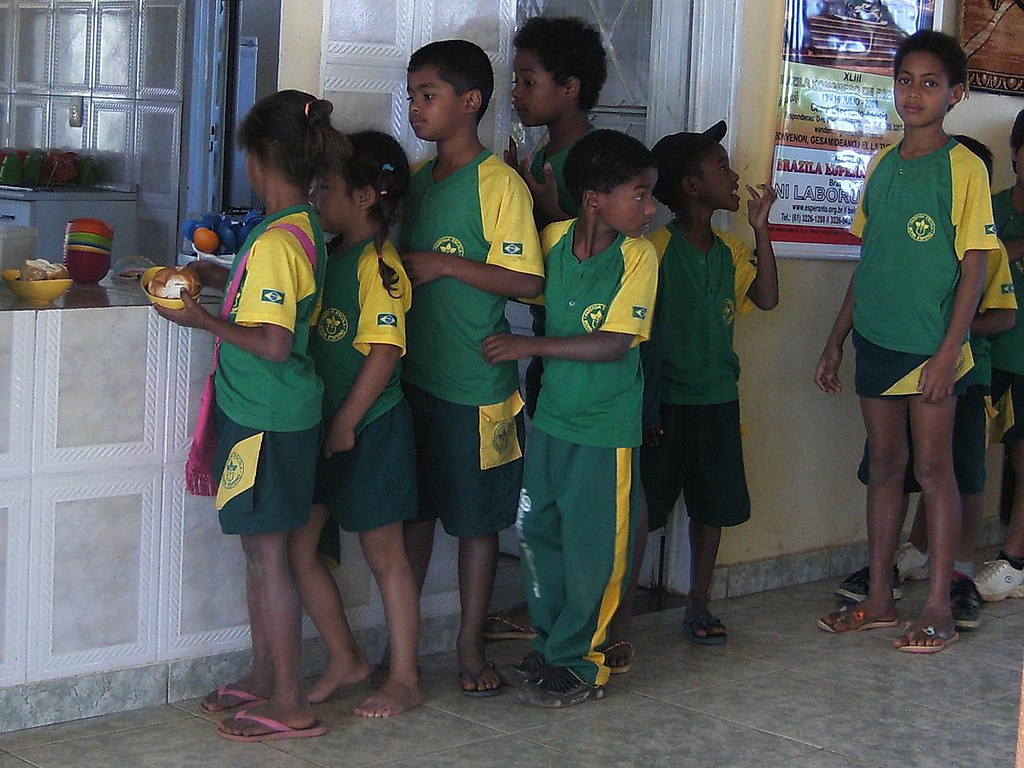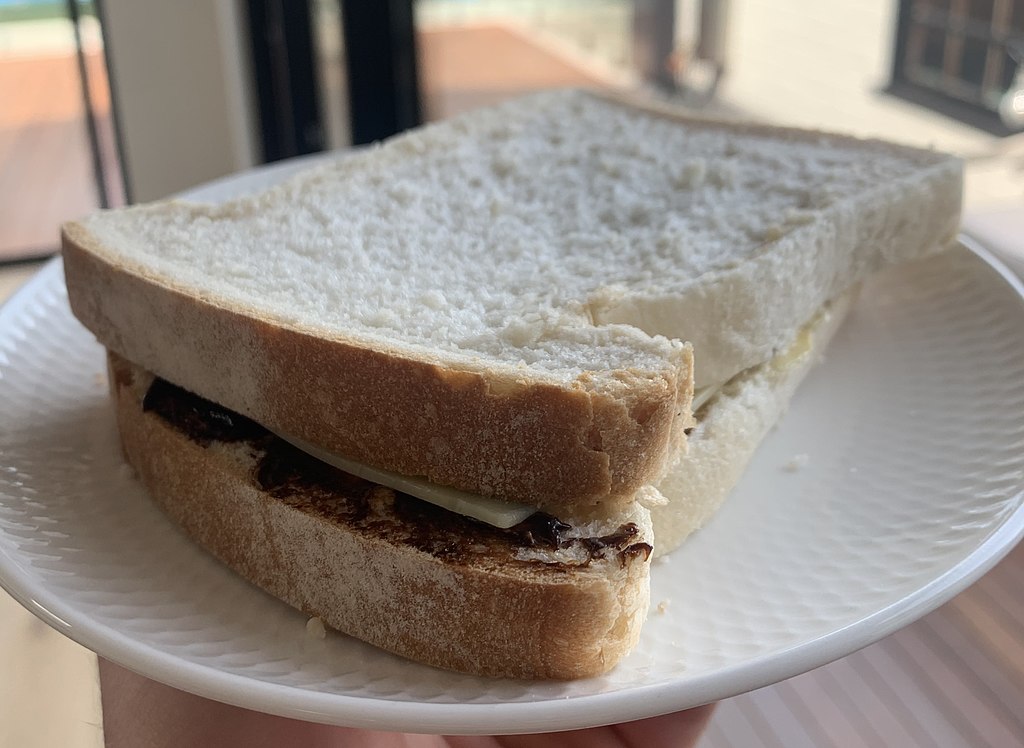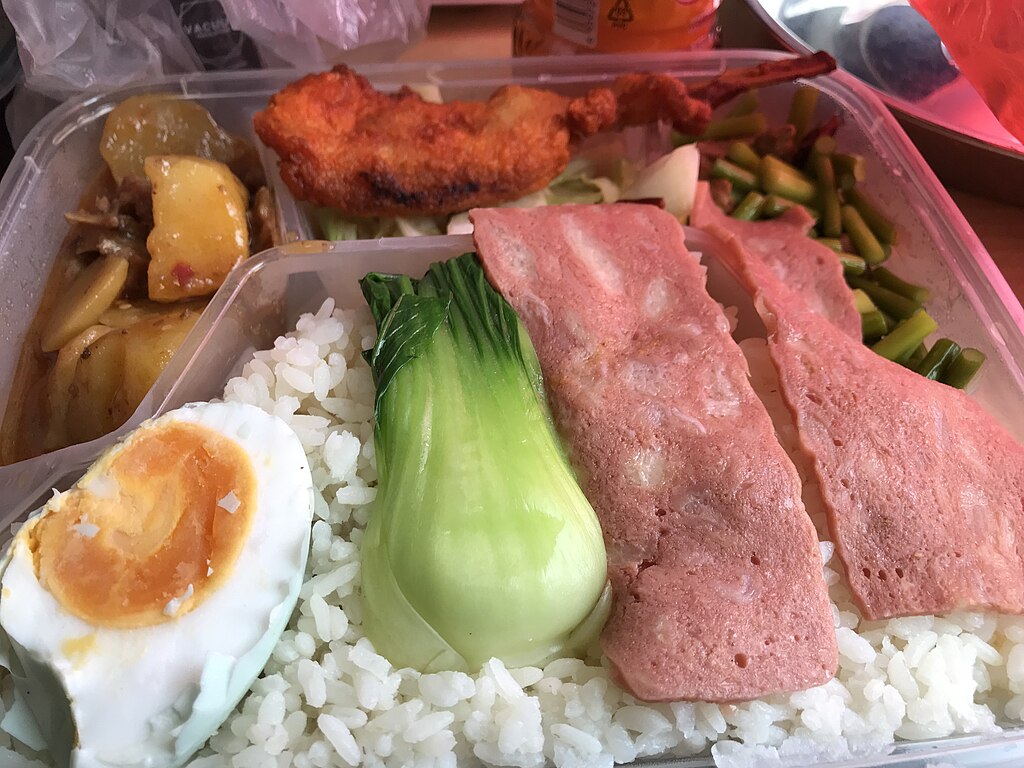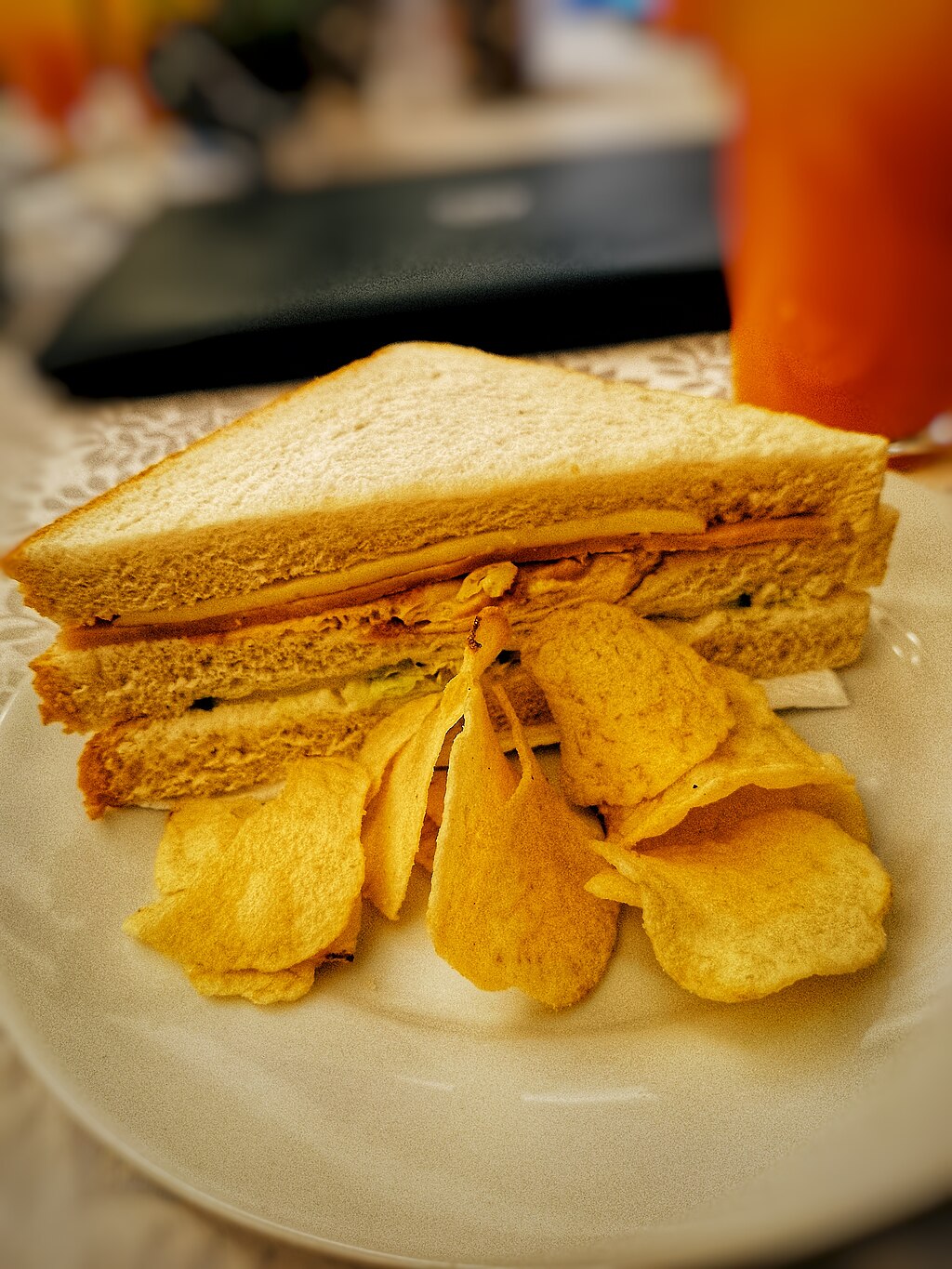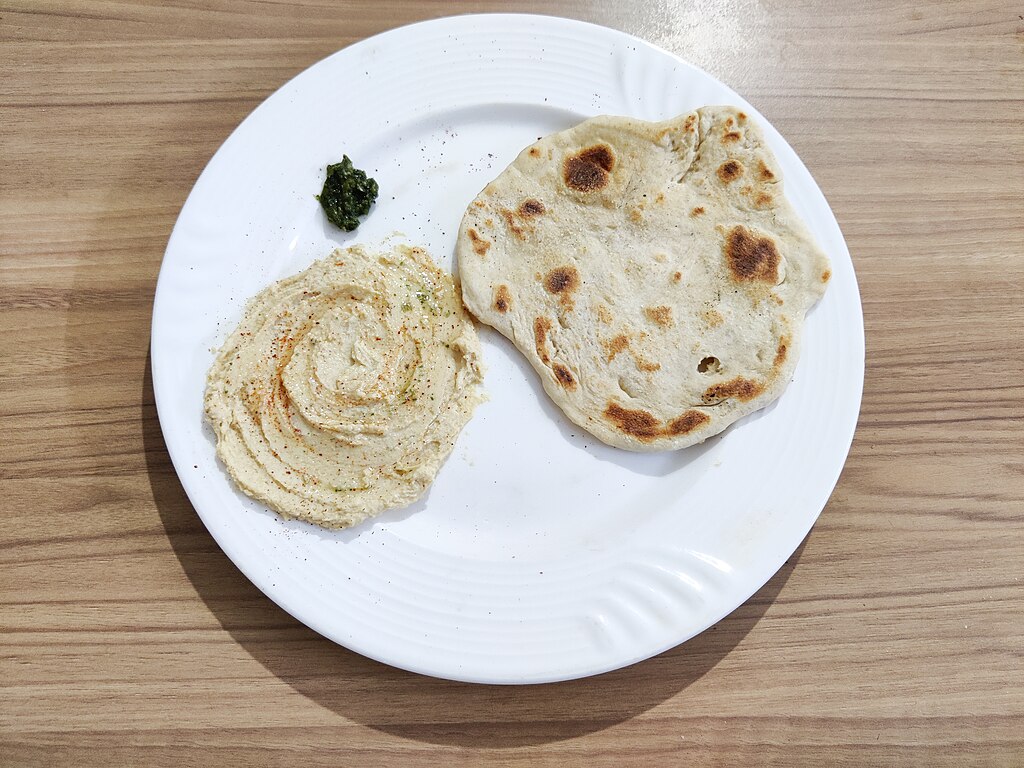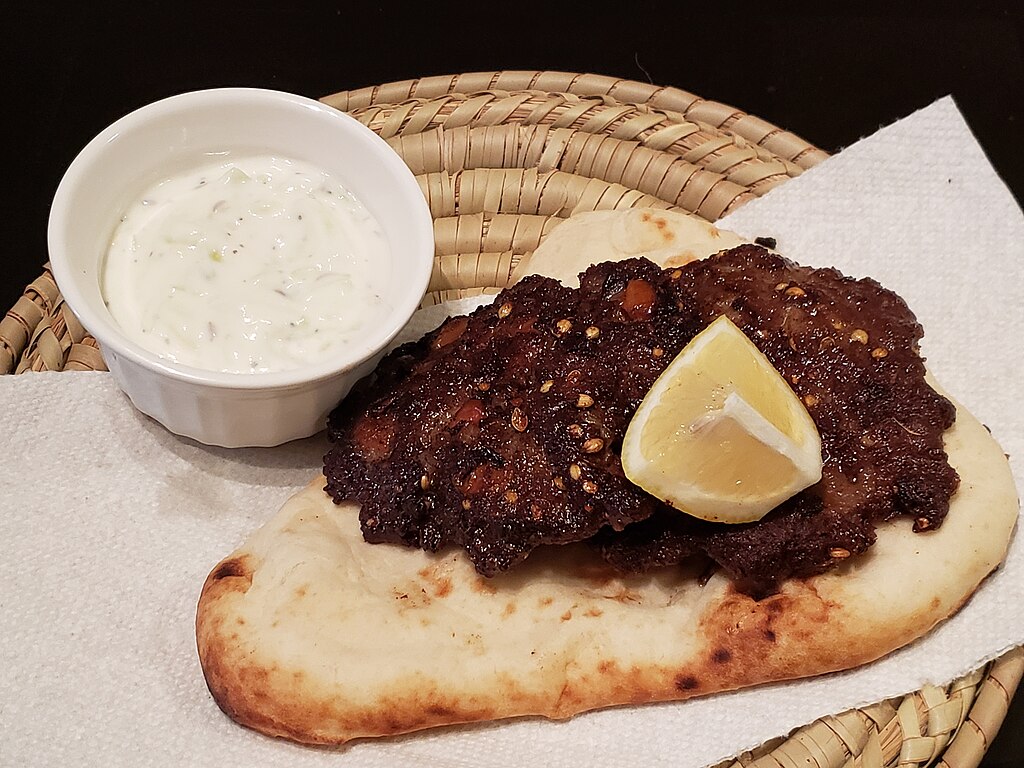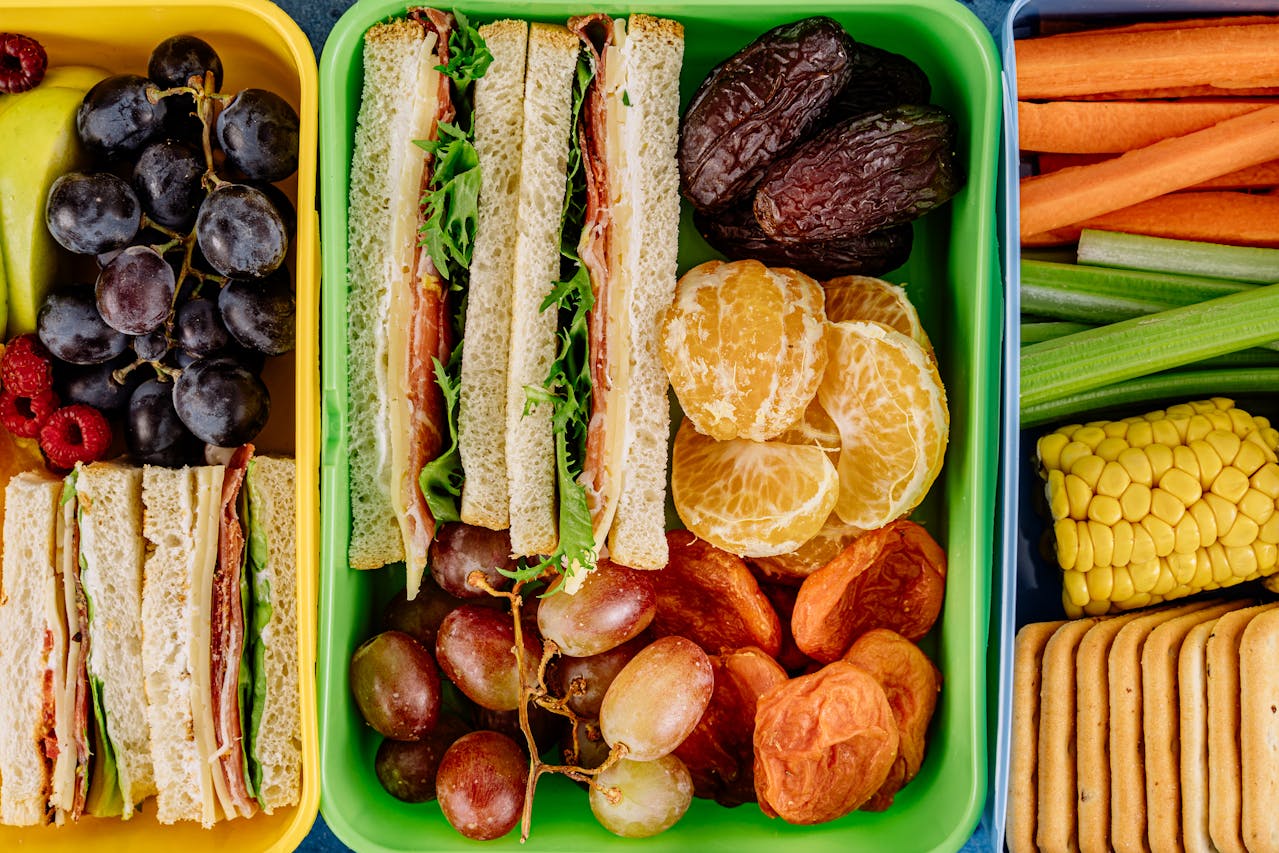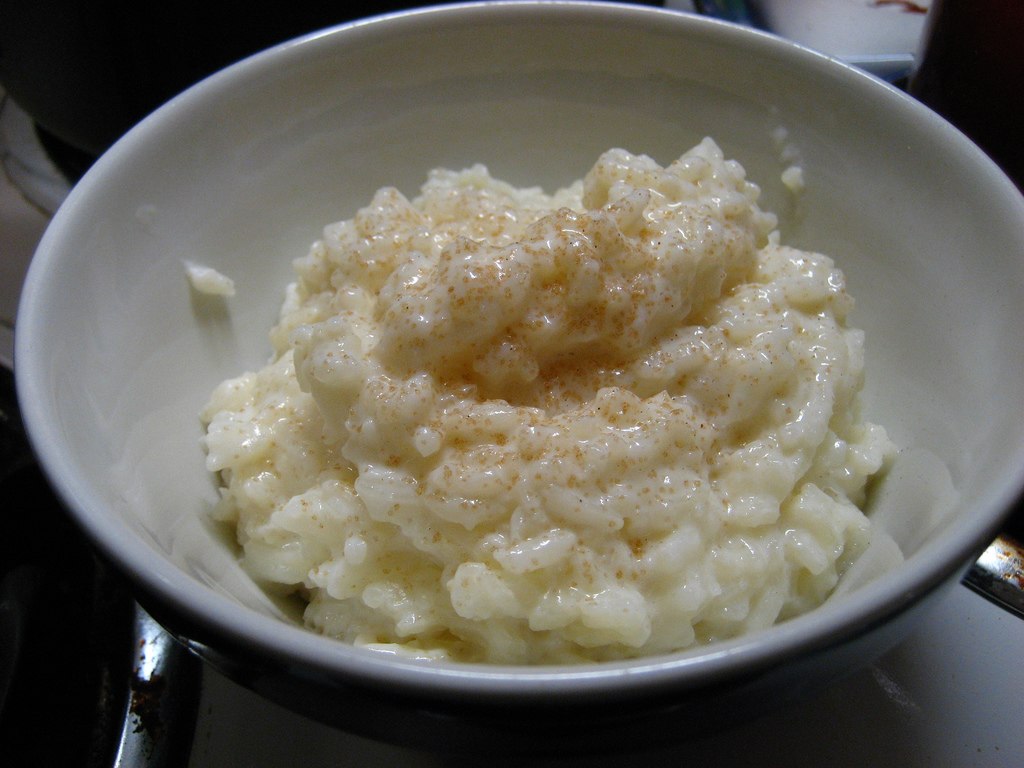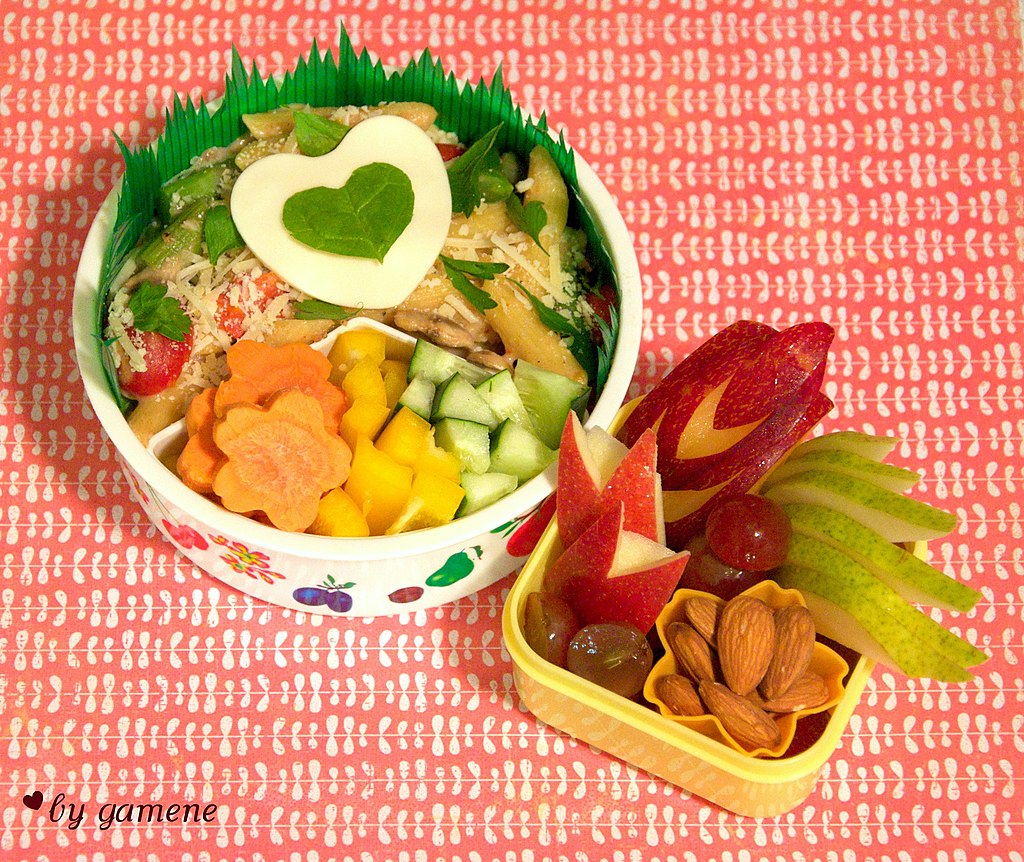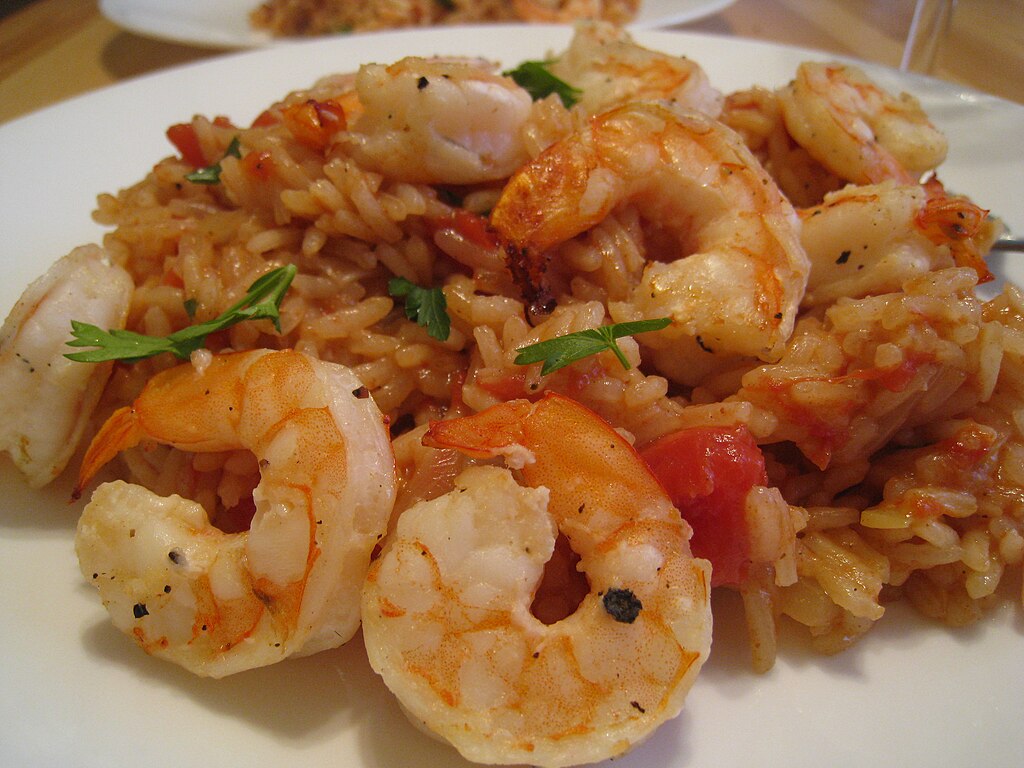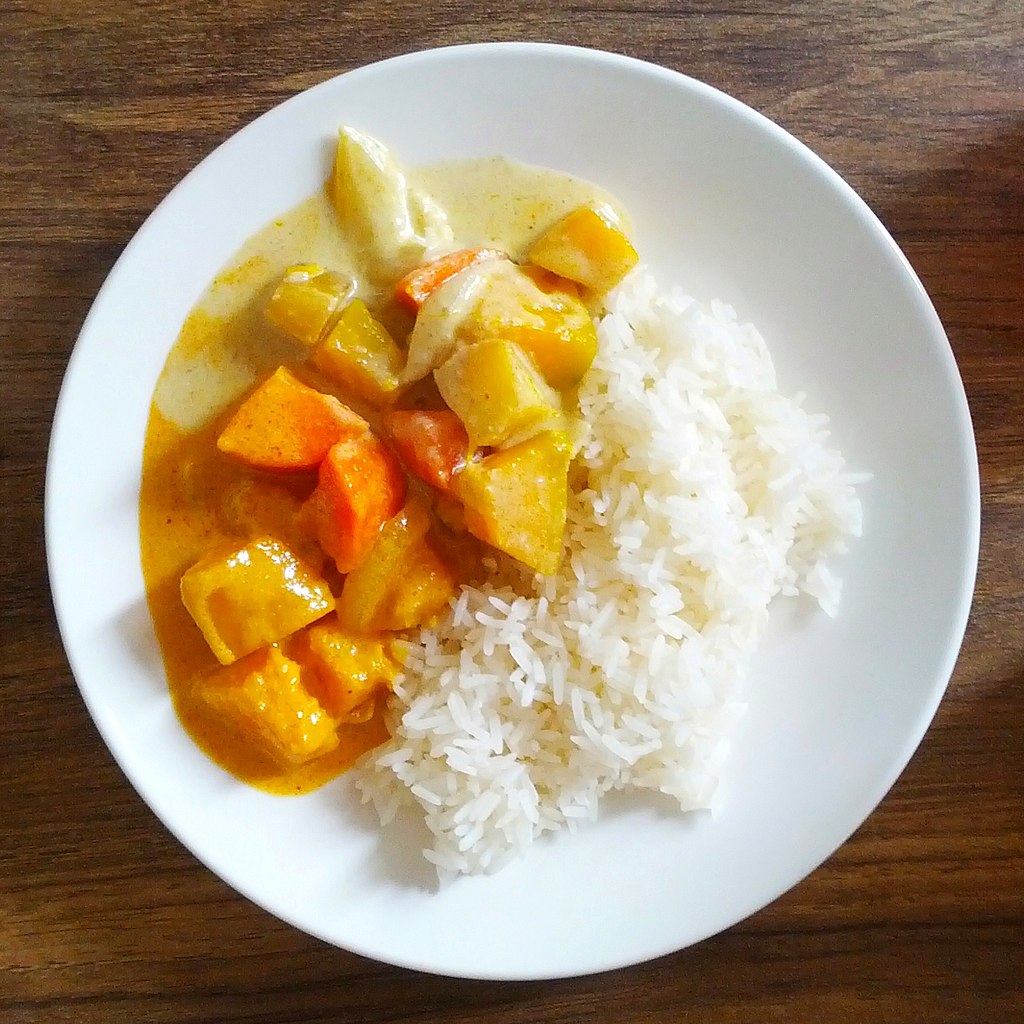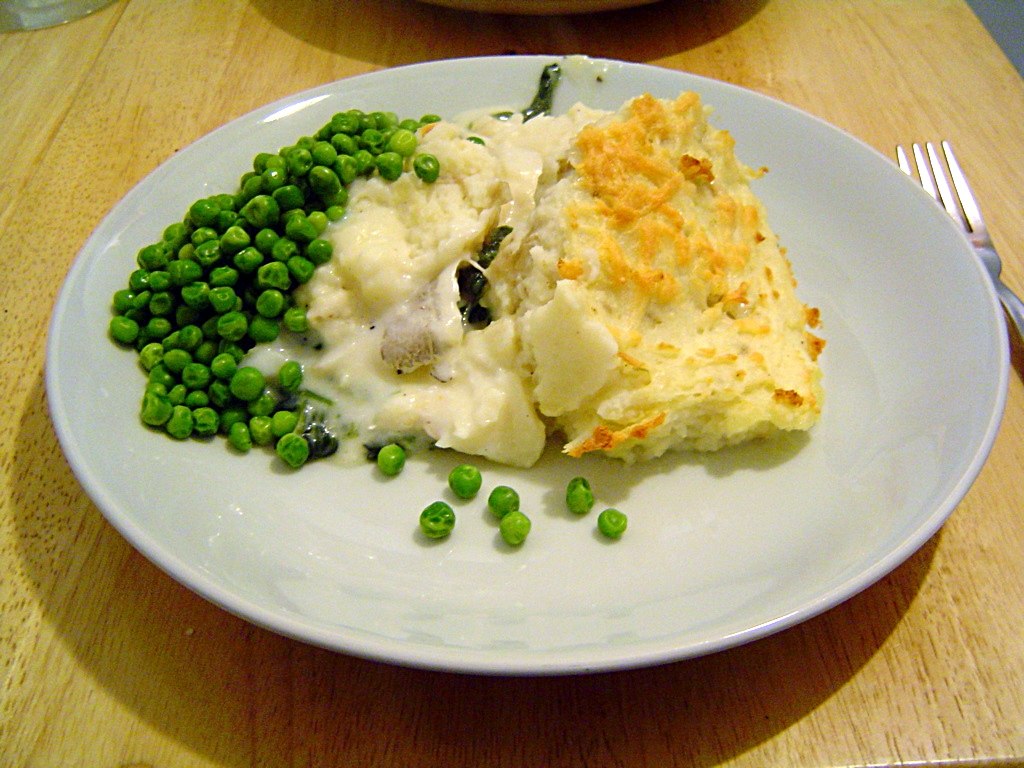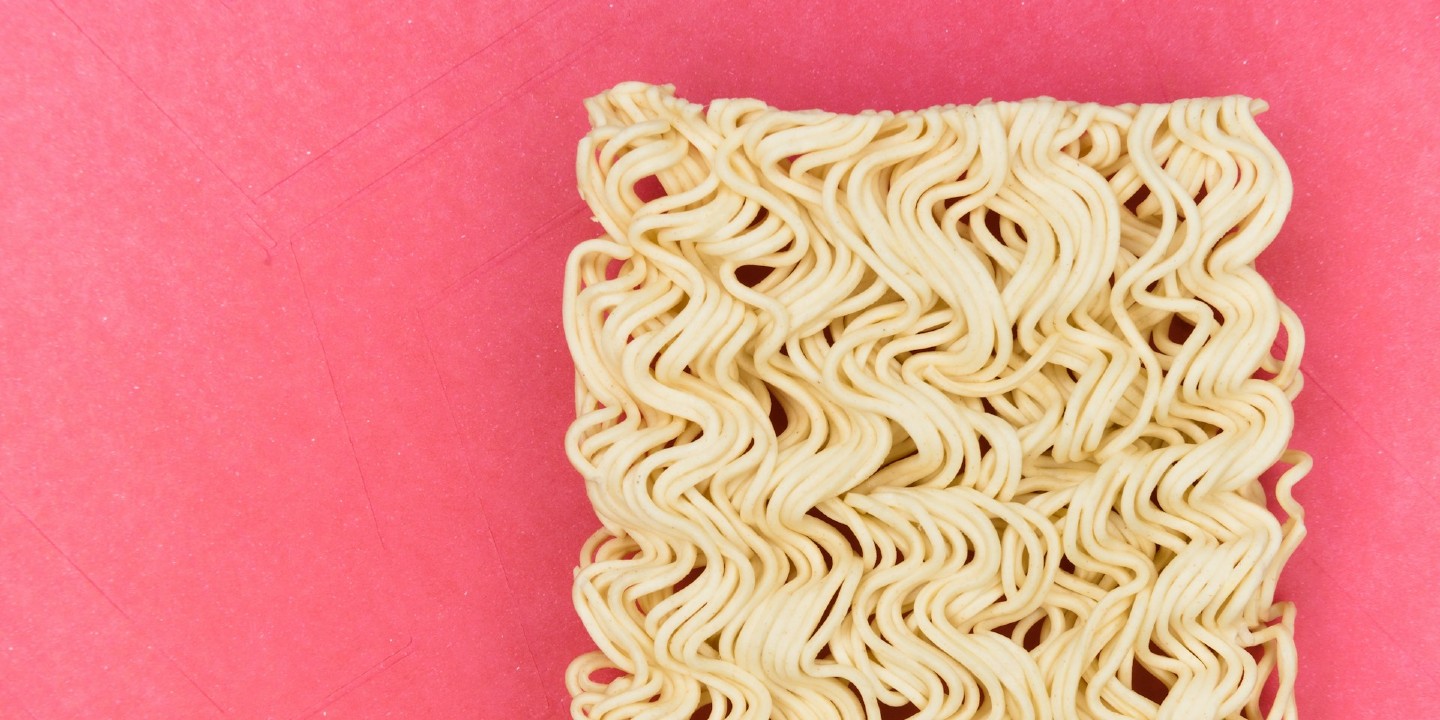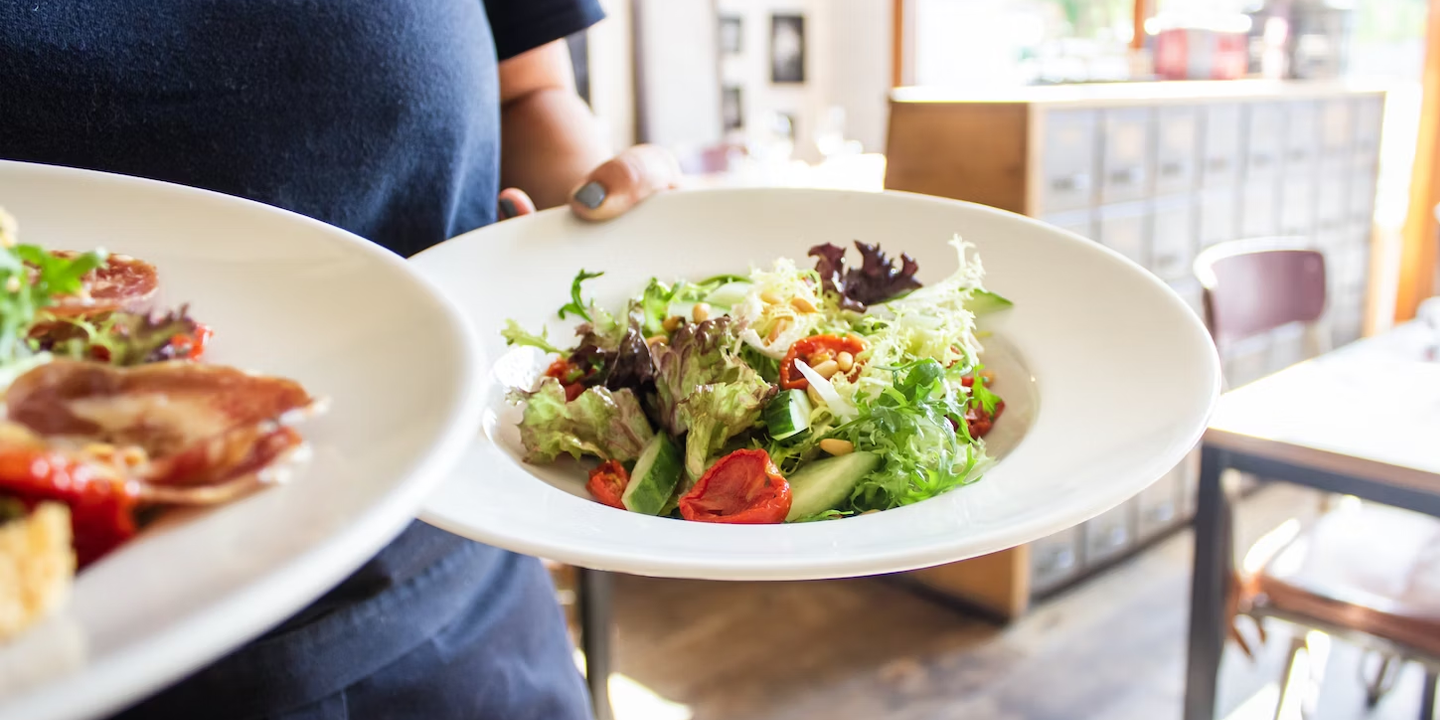The dog ate my homework, so what’s for lunch?
Some kids prefer their lunch break over math class but they're not wrong, it's an important part of their school day. Some countries have lunch programs in place while others leave it up to the parents to pack a lunchbox. From paper bag lunches to gourmet canteens, this is what students are munching on at schools across the globe:
1. France
Are we surprised that France serves their students a 4-course meal at lunchtime?–– Non! The school cantines typically serve a starter salad, then meat or fish with vegetables for the main dish. The French lunch could not be complete without a piece of cheese with bread and fruit for dessert.
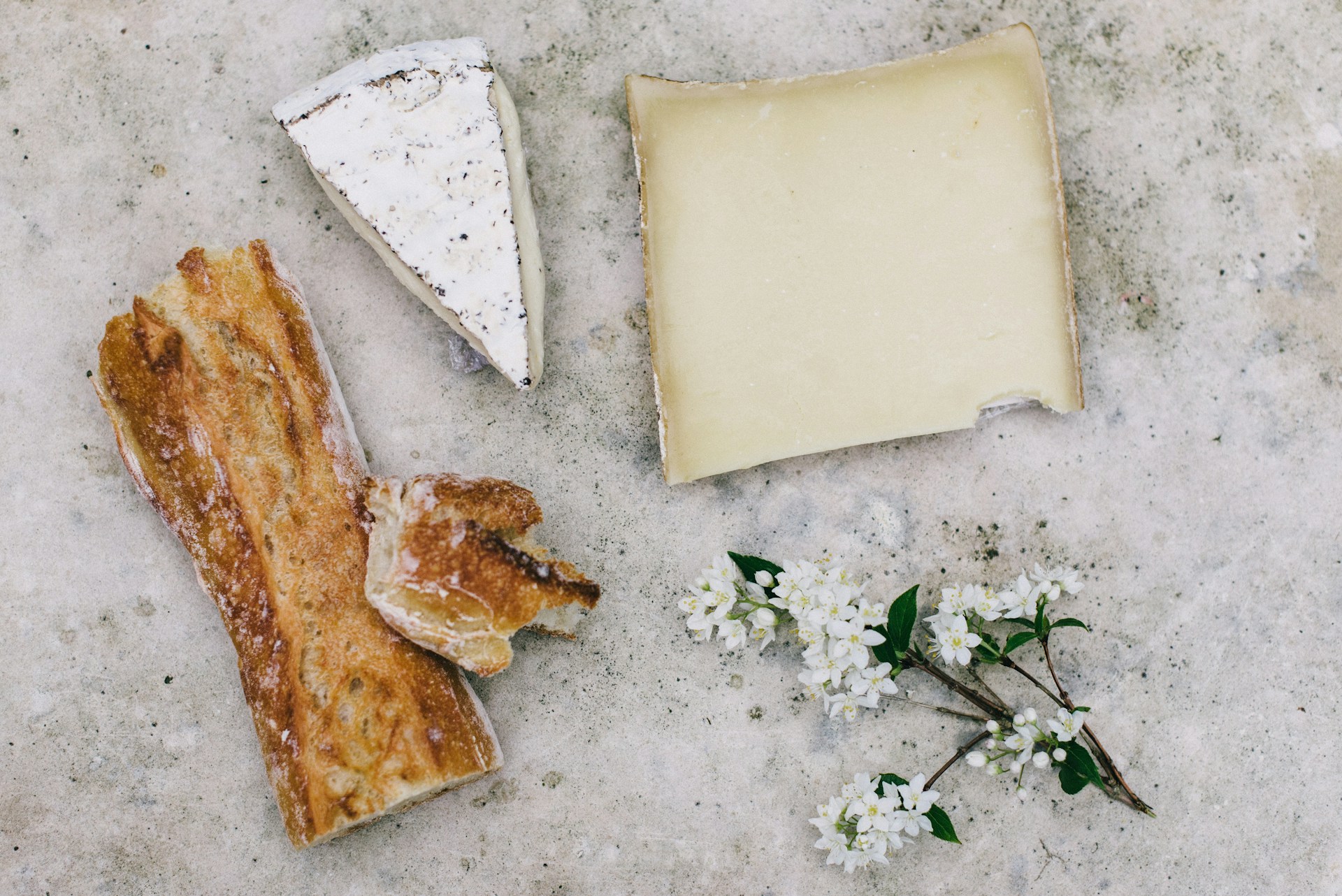 Alice Donovan Rouse on Unsplash
Alice Donovan Rouse on Unsplash
2. Japan
Lunch is a big deal in Japanese schools. Nutrition lessons are integrated into the curriculum and often kids take turns cooking for their peers in the classroom. Lunches cover many food groups often including rice, soup, vegetables, and fish.
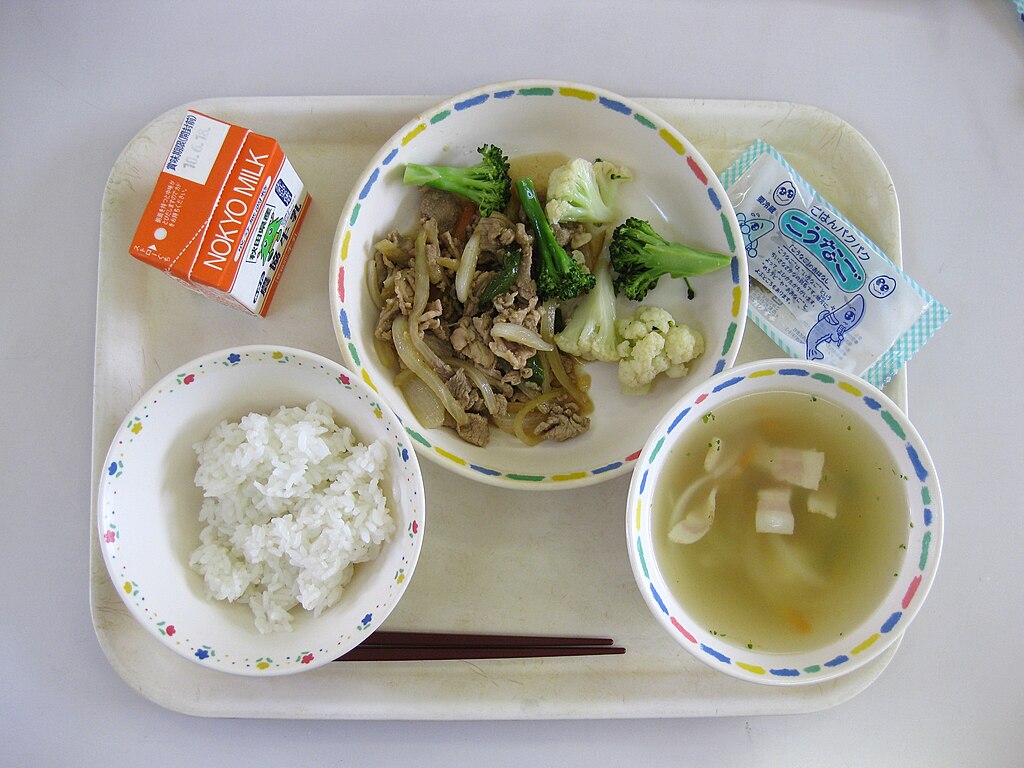 Douglas P Perkins on Wikimedia
Douglas P Perkins on Wikimedia
3. South Korea
Metal trays with measured portion sized sections is typical in a South Korean cafeteria. Each of the food groups are portioned out for a healthy balanced meal. You’ll likely find the largest section filled with rice, while other sections are filled with soup, kimchi, vegetables, and meat.
4. Ethiopia
Most school lunch programs in Ethipoia are plant-based. Lunch usually contains a traditional flatbread called injera topped with a flavorful arrangement of veg and legumes. It’s typical to eat injera with spicy lentils, zucchini, split-peas, and beets.
5. Ukraine
Ukraine schools like to serve up a 3 course meal. Typically lunch starts with a hearty beef and cabbage soup followed by a protein and starch like a sausage and dumplings called varenyky. The third course is a dessert like shortbread biscuits to complete the meal on the sweet side.
6. Kenya
Lunches are provided in most schools in Kenya and students line up to be served outside or in a dining hall. A stew called githeri is a traditional lunch consisting of corn, beans, and available vegetables. Avocados and bananas are often added to thicken the hearty stew.
7. Finland
Most kids get their lunches at school since the government funds a school lunch program. Lunch usually involves a local recipe including a hot meal that be meat, fish, or beans served with vegetables and a crispy bread. Children wash their lunches down with water or milk to drink.
8. Brazil
Brazil is known to have a solid school lunch program that allows kids to eat multiple times a day. They also try to reduce food waste by turning leftovers into broths, soups, and rice dishes. A traditional Brazilian dish includes rice and beans, vegetables or salad, meat, fruit, and fried plantains.
9. Australia
Often Aussies are sent to school with packed lunches or they purchase food from the school canteen. Although lunches may vary, it’s very common for youngsters to bite into a Vegemite and cheese sandwich. It’s also typical to find a meat pie or sausage roll and chocolate biscuits called Tim Tams in their lunchbox.
10. China
Many schools in China serve a boxed lunch paid for by parents who pay a monthly fee. A lunch box includes a variety of rice, meat, and vegetables. Noodles, soy products, and eggs are traditionally eaten at lunch as well.
11. Ireland
Many Irish children pack their school bags with lunches made by their mums. Typically it’s a cold lunch consisting of a sandwich with meat and cheese, and snacks like crisps, yogurt, fruit, or veggie sticks. If they’re lucky, kids may unpack a piece of homemade brown bread or a scone.
12. India
Rice and roti served with a steamy curry is traditional for school lunch as well as dinner. Ingredients like chickpeas, lentils, and split peas are staples in many curry dishes. There are free lunch programs in place for several schools in India that require a different meal to be served each day.
13. Israel
School systems frown upon packed lunches filled with sugary snacks. Students might receive a hot meal at school in the late morning followed by an afternoon lunch break. Pita with hummus, tzatziki, or nut butter and some fruit are standard packed lunches.
14. Pakistan
A lunch for school in Pakistan is usually homemade and eaten at a classroom desk. Traditional food like Chapli kebabs are made for lunch. These kebabs consist of patties made from minced meat, pomegranate seeds, and spices like cumin and garam masala. They’re eaten with a starch like rice or chapati and topped with chutney.
15. Norway
Many children in Norway bring their lunches to school with them. Typically they’ll unpack homemade bread in a sandwich with cured ham, smoked salmon, or local cheese. Fruits and veggies often accompany the sandwiches with juice or milk to drink.
16. Cuba
Free school lunches are in place for elementary school students in Cuba. A cafeteria will usually serve dishes of rice and stew involving meat and vegetables. Fruit and sweets like rice pudding is a common dessert provided.
17. Italy
There’s no doubt Italians do school lunches right–– healthy and delicious. Supposedly, school cafeterias aren’t allowed to serve fried or processed food. Classic lunches serve up a variety of dishes covering the food groups from starches to proteins. Fruit and veggies take up half the plate next to something like pasta or soup with meat, fish, eggs, or cheese.
18. Spain
Spanish cuisine is heavy on rice and seafood and that is typical of their school lunches. Traditional lunchtime meals include seafood paella or shrimp on rice served with a soup or gazpacho. Fresh local fruit like oranges and melons are sweet and juicy treats before heading back to class.
19. Thailand
Like many other cultures, rice is a crucial part of Thailand’s cuisine. Rice and two sides are a common lunchtime meal for Thai kids. Sides often include tofu or meat along with vegetables. They might finish sweet with coconut jelly or tropical fruit.
20. England
Like many North American schools, English students often bring their own packed lunch or order from the cafeteria. Some schools are noted to have a variety of hot meals enjoyed by the Brits like spaghetti bolognese, baked potatoes, stew, and fish pie.


